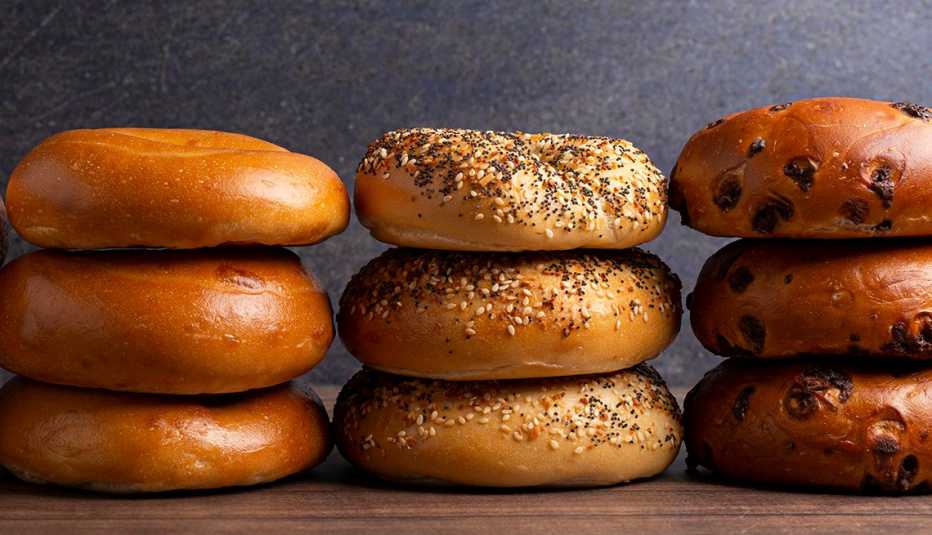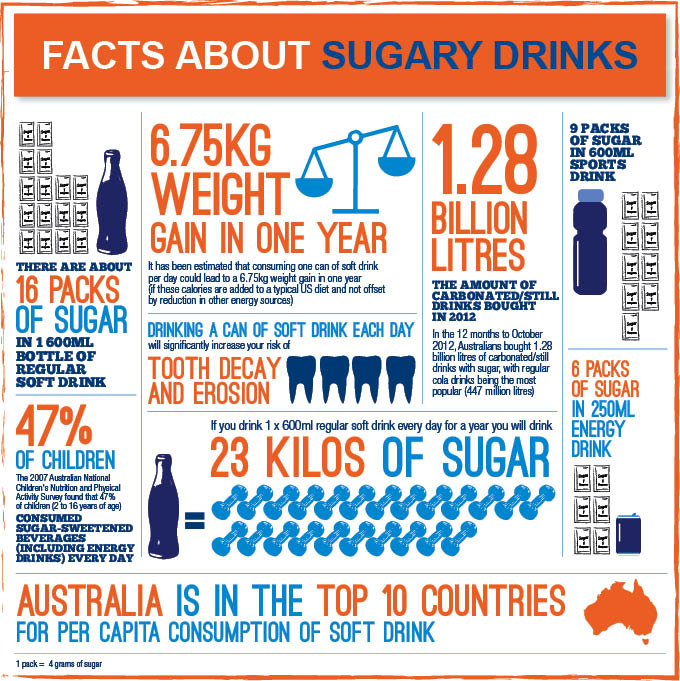Energy drinks can contribute to weight gain if consumed in excess due to their high sugar and calorie content. Controlling intake is crucial to avoid extra pounds.
Energy drinks, with their blend of sugar, calories, and sometimes added ingredients designed to boost energy, have become a staple for many seeking a rapid pick-me-up. Yet, it’s important to consider their nutritional impact, particularly in relation to weight management.
These beverages can stealthily add significant caloric intake to your diet, leading to weight gain if not balanced with physical activity. Care should be taken to account for these additional calories when planning meals and snacks to maintain a healthy weight. Remember that moderation is key, and it’s best to opt for energy boosts from natural sources whenever possible.
The Surge Of Energy Drinks
The Surge of Energy Drinks is undeniable in today’s fast-paced world. These beverages promise a quick fix of vigor. They cater to busy adults, athletes, and students seeking an instant boost. Understanding the impact of energy drinks on weight gain is key for health-conscious consumers. Let’s dive into their popularity and what goes inside each can.
Popularity And Prevalence
Energy drinks have skyrocketed to fame. Young adults and teenagers especially favor them for their stimulating effects. These drinks have become staples at parties, during study sessions, and in scenarios demanding prolonged alertness. Market presence has expanded drastically, with brands investing heavily in advertising. Celebrity endorsements and sponsorship of high-energy events further fuel their prevalence.
- Available in various flavors
- Marketed for performance enhancement
- Sponsor extreme sports events
Ingredients Commonly Found
A glance at the label reveals why energy drinks are potent. They contain a blend of stimulants and sugar. These ingredients create that sought-after energy burst but also pose a risk for weight gain.
| Ingredient | Function | Concern |
|---|---|---|
| Caffeine | Stimulates the central nervous system | Can lead to dependence |
| Sugar | Provides quick energy | Excess intake causes weight gain |
| Taurine | Amino acid touted for endurance | Long-term effects unknown |
| B-vitamins | Supports metabolism | Overconsumption has negligible benefits |
High sugar content is a concern with these drinks. While sugar can give an immediate energy spike, it can also prompt a sharp drop in energy levels later. This can lead to a cycle of consumption, potentially contributing to weight gain.
Zero-sugar varieties have gained traction. But they often contain artificial sweeteners. These sweeteners can still trigger cravings for sweet, high-calorie foods.
Calories And Weight Gain
When it comes to weight management, calories play a crucial role. The food and drinks you consume daily determine your overall energy intake. Energy drinks are a popular choice for many seeking an extra boost. But could these energizing beverages be adding unwanted pounds? Let’s explore how calories from energy drinks could potentially lead to weight gain.
Energy Drinks And Calories
Most energy drinks pack a calorie punch. Each can contain a significant amount of sugar, contributing to the overall calorie content. Here is what typically goes into energy drinks:
- Sugars: Ranges from 10 to 30 grams per serving
- Calories: Approximately 50 to 200 calories per can
While not all energy drinks are high in calories, checking the label is vital. Opt for sugar-free or lower-calorie options to reduce calorie intake.
The Science Of Caloric Surplus
Weight gain occurs when the body consumes more calories than it burns—a state called caloric surplus. Each energy drink can add to your daily calorie count, nudging you closer to a surplus.
Understanding the science is simple:
- Drink more calories than your body needs
- Excess calories store as fat
- Stored fat leads to weight gain
To maintain a healthy weight, balance caloric intake with exercise. Keep track of the calories in each energy drink, and adjust your diet and activity accordingly to avoid a surplus.
Sugar Content Analysis
Analyzing the sugar content in energy drinks is eye-opening. These drinks often pack a sweet punch that can sneak up on your waistline. Understanding the impact of sugar in these beverages is key. Here’s a sugar content analysis that sheds light on how energy drinks could potentially lead to weight gain.
Sugar In Energy Drinks
Energy drinks are popular for their quick boost of energy. But that energy often comes from high sugar content. Many brands contain sugar amounts equal to or even surpassing that of sodas. Labels might show sugars under different names like sucrose, glucose, or corn syrup.
Consider these points:
- Some drinks have more than 30 grams of sugar per serving.
- A single can may contain multiple servings, doubling or tripling sugar intake.
- Diet or zero-calorie versions may use artificial sweeteners.
A table comparison of popular drinks reveals surprising figures:
| Energy Drink | Sugar Content |
|---|---|
| Drink A | 27g per 8 oz |
| Drink B | 31g per 8 oz |
| Drink C | 24g per 8 oz |
Impact Of Sugar On Weight
The impact of sugar on weight gain is significant. Sugars contribute to overall calorie intake without providing nutritional value. Excess sugars convert to fat, leading to weight gain over time.
Keep these facts in mind:
- Calories from sugar can quickly add up, leading to caloric surplus.
- A link exists between high sugar intake and increased body fat.
- Frequent consumption may alter metabolism and increase craving for sweets.
Reducing energy drink consumption can be a smart move towards weight management. Water, natural fruit juices, or hydration with electrolytes make healthier alternatives.
Caffeine’s Role In Metabolism
Exploring the intricate dance between caffeine and metabolism reveals an interesting nuance in how energy drinks might impact our weight. Caffeine, a common ingredient in these beverages, serves as a metabolic catalyst, potentially influencing our body’s ability to manage weight.
Caffeine’s Metabolic Effects
Caffeine stimulates the nervous system, which can lead to an increased metabolic rate. This means that your body burns more calories at rest when caffeine is present. The effects include:
- Raised heart rate: This increases the amount of energy your body uses.
- Promoted fat oxidation: Your body burns fat for energy instead of storing it.
- Thermogenesis: Caffeine induces heat production, burning extra calories.
These effects combined can play a role in how effectively our bodies process the calories we consume.
Contrasting Caffeine And Weight Control
Caffeine alone may boost metabolism but does not directly lead to weight gain or loss. The critical factor in weight management is the caloric content of the energy drink. Energy drinks often come packed with sugar and extra calories, which can overwhelm the subtle metabolic boost from caffeine.
| Component | Metabolic Effect | Weight Impact |
|---|---|---|
| Caffeine | Increases metabolism | May aid in weight control |
| Sugars and Calories | Minimal effect on metabolism | Can contribute to weight gain |
Selecting energy drinks with no added sugar and low calories is key. Despite caffeine’s potential metabolic benefits, the overall calorie intake will determine weight gain or loss.
Artificial Sweeteners: A Double-edged Sword
Energy drinks may seem like a quick solution to boost energy. Yet, their ingredients could impact weight. Artificial sweeteners, often found in these beverages, serve as a double-edged sword. While they contain fewer calories than sugar, their effect on appetite and weight is complex and debated.
Types In Energy Drinks
Many energy drinks use various artificial sweeteners. These may include:
- Aspartame – Common yet controversial
- Sucralose – Sweeter than sugar
- Acesulfame K – Often blended with others
Each type has unique properties but shares a common goal: to reduce calories while maintaining sweetness.
The Debate On Weight Impact
The impact of artificial sweeteners on weight gain is hotly debated. Some studies suggest they help with weight loss. Others argue they may lead to weight gain by triggering sweet cravings.
| Study Finding | Potential Impact |
|---|---|
| Weight Loss Aid | Reduced calorie intake |
| Weight Gain Trigger | Increased appetite and sweet cravings |
The topic remains contentious with experts urging moderation and further research into long-term effects.

Consumption Patterns And Lifestyle Factors
Delving into how energy drinks can impact weight gain requires examining consumption habits and lifestyle factors. We’ll explore how frequency, quantity, and activity levels intertwine with your energy drink intake.
Energy Drink Consumption Habits
Daily intake of energy drinks can lead to weight gain. These beverages often contain high sugar and caloric content.
Choosing low-calorie or sugar-free options may reduce this risk. Yet, artificial sweeteners can still shape poor eating behaviors.
- Occasional use may not affect weight markedly.
- Moderation is essential to prevent unwanted pounds.
Understanding serving sizes is critical. Oversized cans lead to consuming more calories than intended.
| Serving Size | Calories | Sugar |
|---|---|---|
| 8 oz | 100 | 27g |
| 16 oz | 210 | 54g |
Lifestyle And Physical Activity Considerations
A sedentary lifestyle may amplify the weight gain effects from energy drinks. Regular exercise can help mitigate this.
Pairing energy drinks with active living is crucial. It helps burn off excess calories provided by the drinks.
Choose activities like:
- Walking
- Running
- Cycling
Maintaining a balanced diet alongside energy drinks also plays a critical role in weight management.
Track your calorie intake. Use this guide to balance it with physical activity:
- Calculate daily calorie needs based on age, sex, and activity level.
- Monitor the calories in each energy drink.
- Adjust exercise regimens to burn additional calories.
Practical Advice For Energy Drink Consumers
Practical Advice for Energy Drink Consumers looks at how to enjoy these drinks smartly. Energy drinks are popular for a quick boost. Yet, they may lead to weight gain if not managed well.
Choosing Healthier Alternatives
Select drinks with fewer calories. Opt for those with natural sugars. Avoid high sugar content.
Look for these on labels:
- No artificial sweeteners
- Low in sugar
- Added vitamins
- Natural ingredients
Moderation And Mindful Drinking
Limit your intake. One drink per day is a safe rule. Understand how much caffeine you consume. Too much can harm your body.
Follow these guidelines:
- Read the label. Know what’s inside.
- Drink water. Stay hydrated.
- Beware of the caffeine. Stick to recommended amounts.

Frequently Asked Questions For Can Energy Drinks Make You Gain Weight
Do Energy Drinks Cause Weight Gain?
Energy drinks can lead to weight gain if consumed in excess due to their high sugar and calorie content. Regular consumption without adequate physical activity may result in more calories ingested than burned, ultimately contributing to weight increase.
How Many Calories Are In Energy Drinks?
The calorie content in energy drinks varies widely, ranging from zero to hundreds of calories per serving. Traditional energy drinks may contain around 110 to 200 calories per can, mostly from sugars.
Are Sugar-free Energy Drinks Better For Weight Loss?
Sugar-free energy drinks can be a better option for those looking to manage weight as they typically have fewer calories. However, they may contain artificial sweeteners, and their long-term effects on weight management are not well-understood.
Can You Drink Energy Drinks While Dieting?
While dieting, it is best to limit energy drinks as they may hinder weight loss efforts. Opting for hydrating, low-calorie alternatives like water or herbal tea is advisable for optimal results.
Conclusion
To sum it up, energy drinks may contribute to weight gain if consumed in excess. Their high calorie content, when not offset by physical activity, gets stored as fat. Mindful consumption and balance are key. Choosing wisely and drinking in moderation can mitigate potential weight-related effects.
Always prioritize your health.

